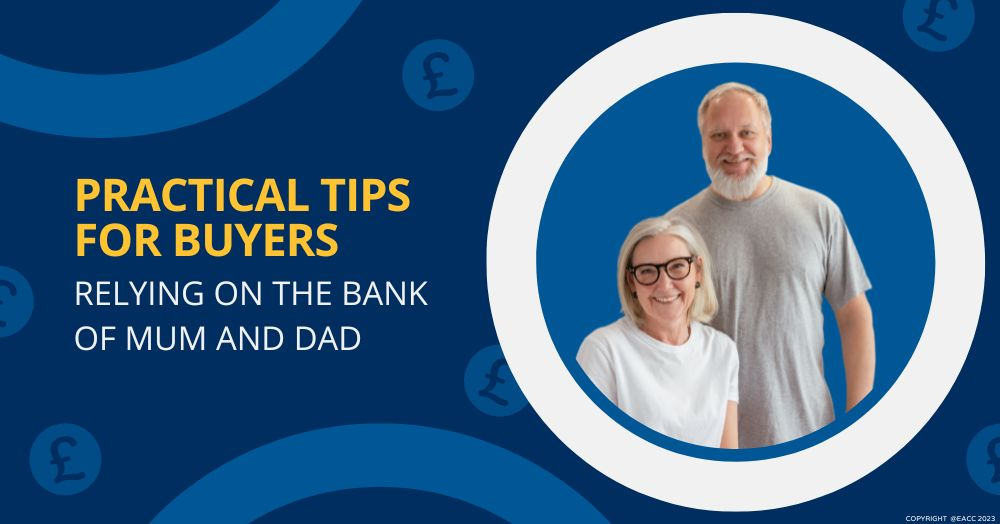In this sales article, we look at the issues around buyers relying on the Bank of Mum and Dad.
Every year, the Bank of Mum and Dad comes to the rescue by helping tens of thousands of first-time buyers get on the housing ladder.
Last year alone, 46% of first-time buyers received financial help from their parents to purchase a property, with £8.8 billion changing hands (source: Savills).
But for parents planning to assist their offspring, or children hoping to get a helping hand, there are a few issues to consider first.
Gifting funds
- Before gifting a lump sum, parents should plan their finances carefully to ensure they have enough reserves if their circumstances change later down the line.
- Parents aiming to avoid inheritance tax (IHT) should check they understand the intricacies of IHT and what the relevant rules are.
- Buyers should inform their solicitor and mortgage broker that they’ve had help from the Bank of Mum and Dad. Parents must provide ID and verify where the funds have come from as part of anti-money laundering regulations. The bank may require written confirmation that the money is a gift.
- Many parents take steps to protect their contribution if their child is buying with a partner. The solicitor handling the purchase can protect the money with a deed of trust. This means if the couple later split, the funds will be ringfenced for your child (it’s not nice to think about it, but it’s worth being cautious).
Loaning funds
- If loaning funds, set out a clear repayment plan (ambiguity can cause conflict).
- Buyers should inform their lender that some of their deposit comes from a loan. The lender will factor this in when determining mortgage affordability.
Act as a guarantor
- Another alternative is for parents to act as a guarantor on the mortgage, using savings or their own home as security. However, parents should be aware that if their child gets into financial difficulty, they’ll have to pay the mortgage – or risk losing their own home.
Joint mortgage
- A more complicated option is to get a joint mortgage where a parent or parents share the mortgage with their child. All parties then share the mortgage burden, but if one person can’t make payments, the other mortgagees are liable.
- This option may have stamp duty implications if the parent already owns a property.
If you want to buy a property, contact us today at Shaws Kensington. We’re here to help.
